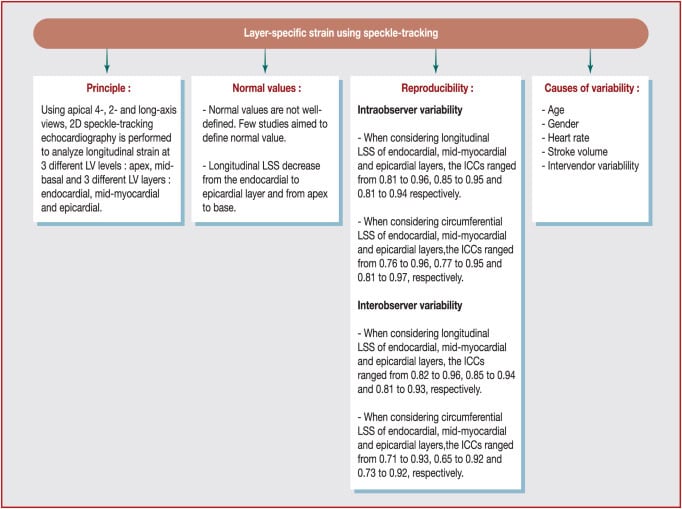Suivez-nous sur les réseaux sociaux !
Retrouvez les articles immanquables des Archives of Cardiovascular Diseases, revue scientifique mensuelle en anglais de notoriété internationale.
Voici un aperçu rapide des sujets abordés dans cette publication :
Dernières publications
Publications
Does layer-specific strain using speckle tracking echocardiography improve the assessment of left ventricular myocardial deformation? A review
Voici un aperçu rapide des sujets abordés dans cette publication :
Archives of Cardiovascular Diseases | Article du mois – Novembre 2020
Yann Ancedy, Stephane Ederhy, Marie-Liesse Jean, Pascal Nhan, Laurie Soulat-Dufour, Saroumadi Adavane-Scheuble, Marion Chauvet-Droit, Franck Boccara, Ariel Cohen
Summary
An increasing number of studies of left ventricular myocardial deformation have been published. Layer-specific strain using speckle tracking echocardiography to evaluate left ventricular function is not recommended in clinical practice. However, evaluation of myocardial mechanics using longitudinal and circumferential layer-specific strain enables the detection of subclinical impairment of myocardial deformation in various diseases. Unfortunately, normal values for longitudinal and circumferential strain have not been clearly defined. In normal subjects, layer-specific strain decreases from the endocardial to the epicardial layer, and from the apex to the base of the left ventricle. Although various studies have tried to define normal values for each layer in healthy subjects, studies with more subjects are needed. This tool has good reproducibility in terms of intraobserver and interobserver variability, but, as with monolayer strain, it has poor intervendor variability. Efforts that aim for standardization between vendors will be required before widespread use of this technique can be advocated.
Graphical abstract
Layer-specific strain characteristics using speckle tracking. 2D: two-dimensional; ICC: intraclass correlation coefficient; LSS: layer-specific strain; LV: left ventricle.

Keywords
Echocardiography, Layer-specific strain, Multilayer strain
Abbreviations
- CAD: coronary artery disease
- GLS: global longitudinal strain
- ICC: intraclass correlation coefficient
- LSS: layer-specific strain
- LV: left ventricular
- NSTE-ACS: non-ST-segment elevation acute coronary syndrome
- SPECT: single-photon emission computed tomography
© 2020 Elsevier Masson SAS. All rights reserved.
Partagez cet article :
Partagez cet article :
Written by : SFC
Plus de publications de la SFC

CARDIOLOGIE PÉDIATRIQUE Three-dimensional echocardiography in adults with congenital heart disease: a scientific statement of [...]

Archives of Cardiovascular Diseases | Juin 2025 Consensus document from the Group Exercise Rehabilitation [...]



